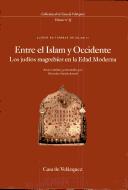| Listing 1 - 9 of 9 |
Sort by
|
Book
ISBN: 9781138614727 1138614726 9780415747646 0415747643 Year: 2019 Publisher: London Routledge
Abstract | Keywords | Export | Availability | Bookmark
 Loading...
Loading...Choose an application
- Reference Manager
- EndNote
- RefWorks (Direct export to RefWorks)
"Translating a collection of the most important descriptions of the Turks found in medieval Arabic texts into English, this book aims at delineating the coming of the Turkic people in the eleventh century, their military successes in Iran and Iraq, and the emergence of the sultanate. The book introduces to the history of the Islamic Caliphate and the Turkic people. This introduction is followed by annotated translated sources which illuminate; the view of the Eurasian steppes in Muslim-Arabic geographical writing from the pre-Saljuq period".
Turkic peoples --- Travelers' writings, Arabic --- Geography, Arab --- Arabic literature --- History. --- History and criticism. --- Islamic Empire --- Politics and government. --- Arabisch. --- Geografie. --- Geography, Arab / History. --- Geschichte. --- Geschichtsschreibung. --- Literatur. --- Littérature arabe / 750-1258. --- Peuples turcs / Étude et enseignement. --- Travelers' writings, Arabic / Asia, Central. --- Turkic peoples / Asia, Central / History. --- Turkvölker. --- Türken. --- Türkenbild. --- Samanides (dynastie). --- Geschichte 600-1500. --- Asie centrale / 712-1221. --- Islamic Empire / Relations. --- Zentralasien.
Article
Abstract | Keywords | Export | Availability | Bookmark
 Loading...
Loading...Choose an application
- Reference Manager
- EndNote
- RefWorks (Direct export to RefWorks)
Article
Year: 1997
Abstract | Keywords | Export | Availability | Bookmark
 Loading...
Loading...Choose an application
- Reference Manager
- EndNote
- RefWorks (Direct export to RefWorks)
Book
ISBN: 9789004228498 9789004261426 9004228497 9004261427 Year: 2014 Publisher: Leiden, Netherlands : Brill,
Abstract | Keywords | Export | Availability | Bookmark
 Loading...
Loading...Choose an application
- Reference Manager
- EndNote
- RefWorks (Direct export to RefWorks)
The present book investigates three short late Mamluk treatises about land properties (waqf) in the Palestinian city of Hebron, which the prophet Muhammad granted to Tamīm al-Darī. The treatise entitled Ḍawʾ al-sārī li-maʿrifat ḫabar Tamīm al-Dārī by al-Maqrīzī (d. 845/1442) is the core of the book. It is edited here for the first time on the sole basis of the copy corrected by the author. A facsimile of the manuscript is also provided at the end of the book. In order to illuminate the discourse on property rights and donation that prevailed in the Mamluk period and al-Maqrīzī’s position, two additional treatises dealing with the same issue are included. The first is al-Ǧawāb al-ǧalīl ʿan ḥukm balad al-Ḫalīl by Ibn Ḥaǧar al-ʿAsqalānī (d. 852/1448). The second is al-Faḍl al-ʿamīm fī iqṭāʿ Tamīm by al-Suyūṭī (911/1505). The three texts are fully translated and annotated and preceded by a thorough introduction.
Waqf --- History. --- Tamīm ibn Aws al-Dārī, --- Waqf. --- History --- Tamīm ibn Aws al-Dārī, --- West Bank --- Awqāf --- Evkaf --- Vaqf --- Vkaf --- Wakf --- Endowments --- Islamic law --- Law and legislation --- Dārī, Tamīm ibn Aws, --- تميم بن أوس الداري --- تميم بن أوس الداري،
Multi

ISBN: 9781618117489 9781618117465 Year: 2021 Publisher: Boston, Mass. Academic Studies Press
Abstract | Keywords | Export | Availability | Bookmark
 Loading...
Loading...Choose an application
- Reference Manager
- EndNote
- RefWorks (Direct export to RefWorks)
Digital

ISBN: 9783110216837 9783110209464 Year: 2009 Publisher: Berlin ;; Boston De Gruyter
Abstract | Keywords | Export | Availability | Bookmark
 Loading...
Loading...Choose an application
- Reference Manager
- EndNote
- RefWorks (Direct export to RefWorks)


ISBN: 8490961166 8495555441 Year: 2017 Publisher: Madrid : Casa de Velázquez,
Abstract | Keywords | Export | Availability | Bookmark
 Loading...
Loading...Choose an application
- Reference Manager
- EndNote
- RefWorks (Direct export to RefWorks)
Los estudios aquí incluidos se enmarcan todos en el área geográfica que comprende el actual territorio de Marruecos extendido por el Este hasta incluir Orán. Se trata del territorio norteafricano de más intensa imbricación con la Península Ibérica y el único en no estar bajo el dominio otomano. La intensidad de las relaciones entre la Península y el Magreb se debe en gran parte a la población judía, verdadera mediadora entre estos dos conjuntos religiosos, culturales y políticos. Los judíos tuvieron que vivir en un ambiente fronterizo y adoptaron estrategias que dejaron una profunda huella en el judaísmo moderno. En este libro se habla de judíos y también de conversos al cristianismo o de criptojudíos. Los contactos de los judíos magrebíes con las comunidades peninsulares son constantes y la existencia de conversos, de «cristianos nuevos», es uno de los problemas más importantes de los primeros siglos de la Edad Moderna española. La historia de estas comunidades forma parte, pues, de la historia de España como de la del Magreb: aparente paradoja que estas actas contribuyen a esclarecer y definir en su justa escala.
Religion --- History --- Juifs --- Afrique du Nord --- judaïsme --- participation politique --- Islam --- christianisme --- période moderne --- África del norte --- christianismo --- Judaísmo --- Judíos --- participación política --- tiempos modernos
Book

ISBN: 9781400849130 Year: 2013 Publisher: Princeton, NJ
Abstract | Keywords | Export | Availability | Bookmark
 Loading...
Loading...Choose an application
- Reference Manager
- EndNote
- RefWorks (Direct export to RefWorks)
Multi

ISBN: 9781400849130 9780691151274 Year: 2013 Publisher: Princeton, N.J. Princeton University Press
Abstract | Keywords | Export | Availability | Bookmark
 Loading...
Loading...Choose an application
- Reference Manager
- EndNote
- RefWorks (Direct export to RefWorks)
| Listing 1 - 9 of 9 |
Sort by
|

 Search
Search Feedback
Feedback About UniCat
About UniCat  Help
Help News
News